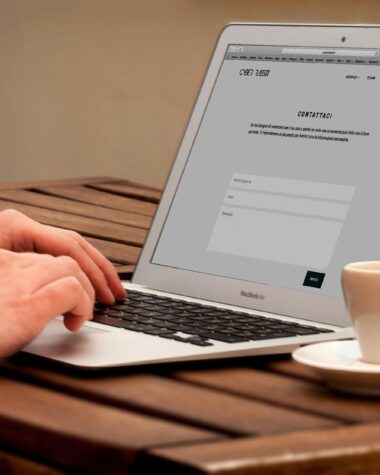Freelancing is on the rise, particularly in the digital marketing industry, where the demand for flexible, remote work options has accelerated. The global freelance market is projected to grow significantly, with digital marketing emerging as one of the most sought-after skills. This surge is driven by businesses increasingly recognizing the value of digital strategies in reaching their audiences.
For those considering a freelance career in digital marketing, the potential is immense. Not only does freelancing offer the freedom to choose your projects and clients, but it also allows for a lucrative income, with top freelancers in digital marketing earning substantial hourly rates.
However, success in this field doesn’t come by chance. It requires a strategic and structured approach, including mastering the fundamentals of digital marketing, building a strong personal brand, and continuously adapting to industry trends.
Starting your journey in freelance digital marketing can be daunting, but with the right guidance and dedication, it’s a highly rewarding career path.
This guide will walk you through the essential steps to becoming a successful freelance digital marketer, ensuring you start on the right foot and continue to thrive in this dynamic industry.
Step 1: Understand the Basics of Digital Marketing
Before diving into a freelance digital marketing career, it’s crucial to understand the fundamentals. Digital marketing involves using digital channels to promote products or services, aiming to reach and engage your target audience effectively.
The essential components of digital marketing include:
Search Engine Optimization (SEO)
SEO is the practice of optimizing your website to rank higher on search engines. This involves using the right keywords, creating valuable content, and ensuring your website is user-friendly and fast.
Content Marketing
This strategy focuses on creating and distributing valuable content, such as blogs, videos, and social media posts, to attract and engage your target audience.
Social Media Marketing
Utilizing platforms like Facebook, Instagram, LinkedIn, and Twitter to promote your brand and engage with your audience. Social media marketing is vital for building relationships and driving traffic to your website.
Email Marketing
Email remains a powerful tool for directly communicating with your audience. By sending targeted emails, you can nurture leads, promote products, and maintain customer relationships.
Pay-Per-Click (PPC) Advertising
PPC is a model where advertisers pay a fee each time someone clicks on their ad, driving traffic to their site rather than earning it organically.
Understanding these components is critical for success in digital marketing. To get started, consider taking online courses from platforms like Google Skillshop or HubSpot Academy, which offer comprehensive guides on these topics. Building a strong foundation in these areas will set you up for success as a freelance digital marketer.
Step 2: Build and Showcase Your Skills
In the competitive world of freelance digital marketing, it’s essential to effectively build and showcase your skills. Here’s how to do it:
Gain Practical Experience
Start with internships or small projects that allow you to apply digital marketing strategies in real-world scenarios. These experiences provide hands-on learning and help you build a solid foundation in key areas like SEO, content creation, social media marketing, and email campaigns.
Create a Personal Website or Blog
Your website should serve as a portfolio that showcases your best work. Include examples of past projects, case studies, and testimonials from satisfied clients. Ensure the website is well-organized and visually appealing to leave a strong impression on potential clients.
Keep Your Portfolio Updated
Regularly update your portfolio with new projects and achievements. This demonstrates your ongoing commitment to staying current in the digital marketing field and keeps your portfolio relevant and attractive to prospective clients.
Focus on Quality Over Quantity
Highlight the projects that best represent your skills and align with the type of work you want to attract. A portfolio that reflects quality work will make you more appealing to potential clients.
By following these steps, you’ll build a strong foundation and effectively showcase your skills, positioning yourself as a sought-after freelance digital marketer.
Step 3: Set Up Your Freelance Business

Starting a freelance digital marketing business requires careful planning, particularly when it comes to the legal and administrative steps involved. Here’s how to set up your freelance business effectively:
Legal Structure and Registration
Decide on the legal structure of your business—sole proprietorship, LLC, or corporation. Each structure has different implications for taxes and liability. Once you’ve chosen, register your business name with the appropriate local authorities. This ensures your business is legally recognized and can operate under the chosen name.
Business Licenses and Permits
Depending on your location and the scope of your services, you may need to obtain certain licenses or permits. Research local regulations to ensure you’re compliant with all legal requirements. This step is crucial to avoid potential fines or legal issues down the line.
Set Up a Business Bank Account
Keeping your personal and business finances separate is essential. Open a business bank account to manage income and expenses related to your freelance digital marketing activities. This separation simplifies bookkeeping, tax filing, and financial management.
Create a Professional Website
Your website serves as the hub of your business operations. It should showcase your services, portfolio, and client testimonials. Ensure the site is optimized for search engines (SEO) to attract potential clients and demonstrate your expertise in digital marketing.
Pricing and Service Packages
Determine your pricing strategy by researching market rates and considering your experience level. Offer service packages at different price points to cater to a variety of clients. Transparency in pricing builds trust and sets clear expectations with your clients.
By carefully setting up the legal and administrative aspects of your freelance business, you create a strong foundation for long-term success in digital marketing.
Step 4: Find Your First Clients
Securing your first clients as a freelance digital marketer can be challenging, but with the right strategies, it’s achievable. Here’s how to get started:
Leverage Your Existing Network
Begin by reaching out to people you already know—friends, family, former colleagues, and other professional contacts. Let them know about your new venture into freelance digital marketing. Personal referrals are powerful and can help you land your first few clients with ease. This approach also builds trust since these connections are likely to recommend you to others.
Use Freelance Marketplaces
Platforms like Upwork, Fiverr, and Freelancer are excellent for connecting with potential clients looking for digital marketing services. Create a compelling profile that highlights your expertise, past successes, and unique value proposition. Ensure your profile stands out by including a well-curated portfolio and positive client reviews.
Engage in Cold Outreach
Cold emailing potential clients is another effective strategy. Research businesses that might benefit from your services and tailor your pitch to address their specific needs. Highlight how your digital marketing skills can solve their problems or help them achieve their goals. A well-crafted, personalized email can open doors to new opportunities.
Network Online and Offline
Participate in industry-related online forums, LinkedIn groups, and social media communities where your potential clients are active. Share valuable insights, answer questions, and engage with the community to establish yourself as an expert. Additionally, attending local networking events or industry conferences can help you connect with potential clients in person.
Offer Value through Content Marketing
Create and share high-quality content—such as blogs, case studies, and infographics—that showcases your expertise. By demonstrating your knowledge, you attract clients who are looking for a digital marketer who understands their industry and challenges.
By combining these strategies, you’ll be well on your way to building a strong client base and growing your freelance digital marketing business.
Step 5: Develop a Strong Personal Brand

Building a strong personal brand is crucial in freelance digital marketing. It helps distinguish you from competitors and attracts high-paying clients who trust your expertise. Here’s how to do it:
Define Your Brand Identity
Start by identifying what makes you unique. Determine your core strengths, values, and the qualities that set you apart in the digital marketing industry. Craft a compelling brand story that resonates with your target audience and clearly communicates the value you offer.
Maintain a Consistent Online Presence
Consistency across all platforms is key to building a recognizable brand. Ensure that your website, social media profiles, and any other digital touchpoints reflect the same branding elements—like colors, fonts, and tone of voice. This uniformity helps potential clients recognize and remember your brand more easily.
Leverage Social Media
Social media platforms are powerful tools for establishing your personal brand. Focus on the platforms where your target audience is most active, such as LinkedIn, Twitter, or Instagram. Regularly post valuable content, engage with your audience, and participate in industry-related discussions to position yourself as a thought leader.
Utilize Testimonials and Social Proof
Social proof, like client testimonials and case studies, is vital for building trust with potential clients. After completing projects, ask satisfied clients for testimonials and showcase these on your website and social media. Highlighting your successes with real-world examples can significantly boost your credibility.
Invest in Professional Development
Continuously enhance your skills and stay updated with industry trends. Attending workshops, earning certifications, and participating in courses not only improve your expertise but also add to your brand’s legitimacy, making you more attractive to prospective clients.
By focusing on these strategies, you can develop a robust personal brand that elevates your freelance digital marketing career.
Step 6: Manage Your Work and Clients Effectively
Effective client and project management are crucial for the success of your freelance digital marketing career. Here’s how to handle both efficiently:
Clear and Consistent Communication
Establishing open lines of communication is key to building strong client relationships. Regularly update clients on project progress, and be prompt in responding to their inquiries. Using tools like Slack, Trello, or Asana can streamline communication and ensure that all parties are on the same page.
Set Realistic Expectations
From the outset, clearly define the scope of work, deadlines, and deliverables. This helps manage client expectations and reduces the risk of misunderstandings. A well-documented agreement can serve as a reference throughout the project, ensuring that both you and your clients are aligned on the goals and timeline.
Use Project Management Tools
| # | Tool | Description | Key Features |
| 1 | Trello | A visual tool that uses boards, lists, and cards to help you organize and prioritize projects. | Task tracking, deadline setting, team collaboration, and easy progress visualization through boards and cards. |
| 2 | Asana | A flexible project management tool that allows you to manage tasks, projects, and team workflows effectively. | Task management, project timelines, workload balancing, integrations with other tools, and detailed progress tracking across multiple projects. |
| 3 | ClickUp | An all-in-one project management platform designed to help you manage tasks, documents, goals, and workflows in one place. | Task management, document management, goal setting, customizable views, time tracking, and comprehensive reporting to monitor project progress and deadlines. |
Handle Feedback and Conflicts Professionally
Feedback is essential for growth. Embrace client feedback as an opportunity to improve your services. If conflicts arise, address them calmly and professionally. Focus on finding solutions that satisfy both you and the client, ensuring that your relationship remains strong.
Maintain Work-Life Balance
Freelancing can blur the lines between work and personal life. Set clear boundaries by establishing dedicated work hours and taking regular breaks to avoid burnout. This balance is vital for maintaining long-term productivity and job satisfaction.
By implementing these strategies, you can effectively manage your clients and workload, leading to a more successful and sustainable freelance digital marketing career.
Step 7: Continue Learning and Adapting
In the rapidly evolving field of digital marketing, continuous learning and adaptation are essential for maintaining a successful freelance career. The landscape of digital marketing is constantly changing, with new tools, technologies, and trends emerging regularly. To stay competitive, freelance digital marketers must commit to ongoing education and skill development.
Stay Updated with Industry Trends
The digital marketing landscape evolves quickly, with trends like AI-driven marketing, changes in SEO algorithms, and the rise of new social media platforms. Regularly reading industry blogs, attending webinars, and participating in online courses can help you stay informed and ahead of the curve. Platforms like Coursera, HubSpot Academy, and LinkedIn Learning offer courses that can keep your skills sharp and relevant.
Embrace New Tools and Technologies
Digital marketing tools and platforms are constantly being updated or replaced by newer, more efficient ones. Familiarize yourself with the latest tools in SEO, social media management, and data analytics. Tools like SEMrush for SEO, Hootsuite for social media, and Google Analytics for data interpretation are essential for modern digital marketing and can give you a competitive edge.
Adapt Your Strategies
As you learn and encounter new trends, be ready to adapt your strategies. What worked last year may not be as effective today. Flexibility and willingness to pivot your approach based on new information will keep your services valuable to clients.
Invest in Continuous Professional Development
Consider pursuing advanced certifications or specialized courses that align with the latest trends and tools in digital marketing. This not only enhances your skills but also boosts your credibility, making you more attractive to potential clients.
By committing to continuous learning and adaptation, you ensure that your freelance digital marketing career remains successful and resilient in the face of industry changes.
Conclusion

Embarking on a freelance digital marketing career is both exciting and challenging. Success in this field requires mastering essential skills, building a robust personal brand, and consistently delivering quality work. By following a structured approach—starting from understanding the basics, building your portfolio, setting up your freelance business, and finding clients—you can position yourself for long-term success.
Freelance digital marketing offers flexibility and the potential for significant income, but it also demands continuous learning and adaptation. Staying updated with industry trends, embracing new tools, and refining your strategies are crucial for staying ahead of the competition. As you grow in this field, remember that building strong client relationships and managing your workload effectively are key to sustaining a rewarding freelance career.
If you’re ready to take the plunge, start by taking the first step—whether it’s gaining a new skill or reaching out to your first client. The journey is challenging, but with dedication, it’s a path that can lead to both personal and professional fulfillment.
FAQs
1. What skills are essential to becoming a freelance digital marketer?
To become a successful freelance digital marketer, you need a mix of technical and soft skills. Essential technical skills include SEO, content marketing, social media management, email marketing, and data analytics. Understanding how to create and manage campaigns across various platforms is crucial. Additionally, soft skills like communication, time management, and problem-solving are key for managing client relationships and delivering consistent results.
2. How do I set my rates as a freelance digital marketer?
Setting your rates depends on several factors, including your experience, the complexity of the project, and market demand. Start by researching what other freelancers in your niche charge. As a beginner, you might start with competitive rates to build your portfolio, then gradually increase your rates as you gain more experience and positive client feedback. Transparency with clients about your pricing is essential to avoid misunderstandings.
3. Where can I find clients for my freelance digital marketing services?
Finding clients can be challenging, especially when starting. Freelance platforms like Upwork, Fiverr, and Freelancer are good places to begin. Additionally, networking through social media, attending industry events, and leveraging your existing network can lead to new opportunities.








